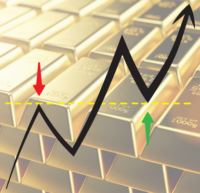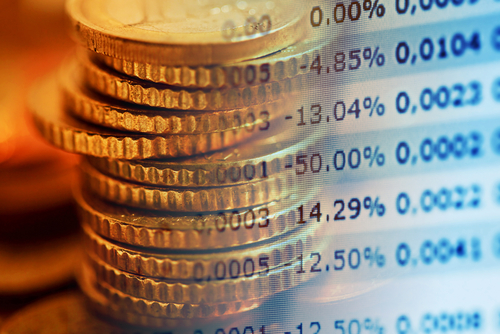Trading gold in the forex market offers a unique opportunity for investors to capitalize on the volatility and intrinsic value of this precious metal. With its longstanding reputation as a safe-haven asset and a hedge against economic uncertainty, gold attracts traders seeking diversification and potential profit. However, like any investment vehicle, gold trading in the forex market comes with its own set of advantages and drawbacks. In this article, we’ll explore the pros and cons of trading gold in the forex market to help you make informed decisions about your investment strategy.
Pros of Trading Gold in the Forex Market
Liquidity:
The forex market is the largest and most liquid financial market globally, with a daily trading volume exceeding $6 trillion. This high liquidity ensures that gold trades can be executed swiftly and at competitive prices, allowing traders to enter and exit positions with ease.
24/5 Market Access:
Unlike traditional stock markets that operate within specific hours, the forex market operates 24 hours a day, five days a week. This extended trading window provides flexibility for traders worldwide, allowing them to capitalize on market opportunities regardless of their time zone.
Leverage:
One of the key advantages of trading gold in the forex market is the availability of leverage. By using leverage, traders can control larger positions with a smaller initial investment, amplifying potential returns. However, it’s essential to use leverage cautiously, as it also increases the risk of significant losses.
Diversification:
Gold is often viewed as a safe-haven asset that tends to perform well during periods of economic instability or market turmoil. By including gold in their trading portfolios, investors can diversify their risk and offset potential losses in other asset classes.
Volatility:
Gold exhibits significant price volatility, presenting traders with ample opportunities to profit from price fluctuations. The forex market’s fast-paced nature, coupled with gold’s volatility, creates a dynamic trading environment that attracts both short-term and long-term traders.
Global Economic Indicators:
Gold prices are influenced by a myriad of global economic indicators, including inflation rates, central bank policies, geopolitical tensions, and currency fluctuations. By staying informed about these factors, traders can make informed decisions and anticipate potential price movements in the gold market.

Cons of Trading Gold in the Forex Market
High Volatility:
While volatility can be advantageous for traders seeking profit opportunities, it also carries inherent risks. Sudden price swings and market fluctuations can result in substantial losses, especially for traders using high leverage or inadequate risk management strategies.
Market Manipulation:
The forex market, like any financial market, is susceptible to manipulation by large institutional players or market participants. Instances of price manipulation or insider trading can distort market conditions and lead to unfavorable outcomes for retail traders.
Leverage Risks:
While leverage can magnify potential returns, it also amplifies the risk of losses. Excessive leverage can quickly deplete trading accounts, especially during volatile market conditions or adverse price movements. It’s crucial for traders to exercise caution and employ proper risk management techniques when using leverage.
Competition:
The forex market is highly competitive, with millions of traders worldwide vying for profit opportunities. This intense competition can make it challenging for individual traders to gain an edge and achieve consistent profitability. Success in the forex market requires skill, discipline, and continuous learning.
Fundamental Analysis Complexity:
Understanding the factors that influence gold prices requires a grasp of complex economic and geopolitical dynamics. Conducting thorough fundamental analysis to assess market conditions and make informed trading decisions can be daunting for beginners and inexperienced traders.
Counterparty Risk:
Trading gold in the forex market involves counterparty risk, as transactions are typically conducted through brokers or financial institutions. While reputable brokers adhere to strict regulatory standards and safeguards, there’s always a risk of default or insolvency, which could result in loss of funds for traders.
Conclusion:
Trading gold in the forex market offers both opportunities and challenges for investors seeking exposure to this precious metal. While the market’s liquidity, accessibility, and potential for profit are appealing, traders must also navigate risks such as volatility, leverage, and market manipulation. By understanding the pros and cons of trading gold in the forex market and employing sound risk management practices, traders can position themselves to capitalize on opportunities while mitigating potential losses. Ultimately, success in gold trading requires a combination of skill, discipline, and a deep understanding of market dynamics.






